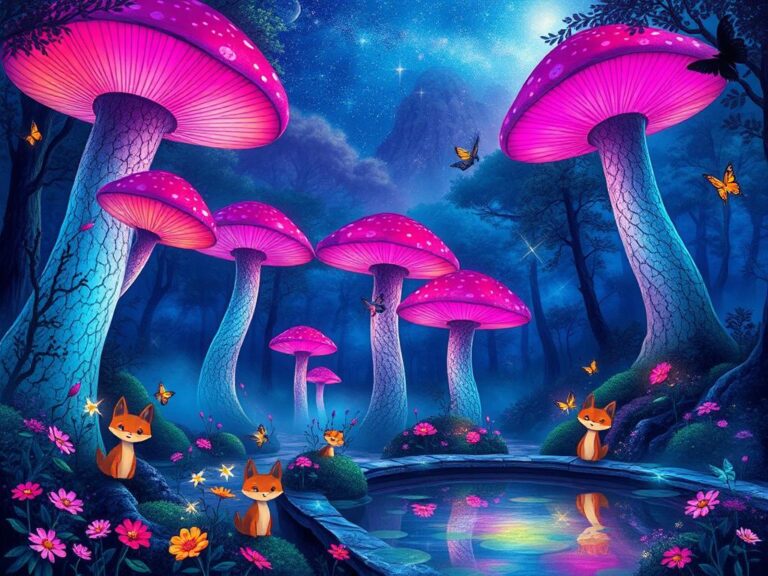Joke Books vs Online Sources: Where to Find the Best Laughs
Joke Books vs Online Sources: Where to Find the Best Laughs
Joke books vs online sources is a debate that many humor enthusiasts engage in when seeking a good laugh. In a world where laughter is considered medicine, knowing where to find those precious laughs is essential. Some may prefer the nostalgia and structure of a physical joke book, while others might embrace the accessibility and immediacy of online platforms. With an abundance of choices available, this article will explore the strengths and weaknesses of joke books and online sources, analyzing key factors to help you uncover the funniest options. Whether you’re a pristine pun collector or just enjoy a casual chuckle, we’ve got insights to guide your search for humor.
1. Nostalgia Factor
The nostalgia factor is one of the defining characteristics when considering joke books vs online sources. There is an undeniable charm associated with flipping through the pages of a classic joke book. The tactile experience of holding the book, the nostalgic smell of aging paper, and the thrill of rediscovering favorite jokes creates a multi-sensory experience.
Humor has a unique ability to bind people together, and sharing jokes from a tangible book often fosters warmth and connection among friends and family. Many recall nostalgic moments spent reading joke books during childhood, cherishing the sound of laughter echoing through the room as anecdotes and punchlines were shared.
2. Curated Content
When it comes to joke books, curated content is an undeniable strength. Well-known humorists and comedians carefully select the jokes that end up in these books, ensuring quality and comedic timing. Each entry likely went through rounds of testing in front of audiences, ensuring it has proven appeal. These books often contain collections centered on specific themes or styles, providing a well-rounded comedic experience.
In contrast, online sources often resemble a wild frontier of humor. While people can find hidden gems online, they must also navigate through poorly crafted jokes and memes. Online humor can be hit-or-miss; therefore, discerning what is quality humor requires effort and sometimes a significant time investment.
3. Accessibility
In this digital age, accessibility is a major consideration when debating joke books vs online sources. The convenience of online platforms allows people to access a world of humor with just a few clicks. In seconds, you can dive into endless streams of jokes, memes, and snippets of humor across websites, blogs, and social media platforms like Twitter, Instagram, and TikTok. This availability means laughter is often only a search away, day or night.
However, this convenience can also feel overwhelming due to the plethora of content available. Sifting through the noise in search of quality jokes can be a cumbersome endeavor. Many online sources lack the editing and reviews that curated joke books provide, leading readers to wade through an ocean of information that often leads nowhere.
4. Variety
Both joke books and online sources offer exciting varieties of humor styles. In the case of joke books, themes often shape the collections present in these works. For instance, there are joke books dedicated to dad jokes, knock-knock jokes, puns, and more, often ensuring the particular flavor of humor you seek was accounted for.
On the other hand, online sources allow for a more dynamic and ever-changing variety of humor styles. These platforms showcase global humor in real time, often reflecting current events or viral trends. Online, humor evolves at a rapid pace, meaning users can access the latest jokes that resonate with popular culture.
5. Cultural References
Online jokes frequently include contemporary cultural references, giving them a unique relevance to current events and trends. A joke referencing a popular meme or viral TikTok challenge can put smiles on faces while capturing moments in time. This offers an exciting avenue for humor enthusiasts who appreciate and want to engage with modern pop culture.
Nostalgic joke books, however, deliver timeless humor that can ease the passage of time, often becoming laughable without attachment to specific events. A classic joke from a black-and-white film can still elicit roars of laughter, contrasting against the ephemeral life of an online meme.
6. Social Engagement
Humor serves as a bridge for social interactions and gatherings. Joke books provide a charming, shared experience best enjoyed in group settings—like family gatherings, dinner parties, or game nights. There’s something enchanting about the laughter that erupts when friends gather to exchange punchlines from a book.
Conversely, online humor often lends itself to solitary engagement, where individuals comment, react, and share humor through screens. While social media can facilitate communal laughs, the nature of online interaction sometimes feels isolating compared to the warmth of shared laughter borne from joke books.
7. Quality Control
Quality control in humor plays a pivotal role in the debate of joke books vs online sources. Joke books typically undergo thorough editing processes, ensuring that the jokes in their pages appeal to a broad audience while adhering to a standard of quality. Editors and curators examine humor and its potential impact, resulting in a collection that embraces laughter while steering clear of potentially offensive material.
Online sources often lack such quality control, leading to occasional offensive jokes or subpar humor. Consumers should be discerning when browsing online humor, as they may encounter content lacking the polish associated with established joke books.
8. Inspiration for Creation
For aspiring comedians, joke books stand as a beacon of inspiration. Within their pages, readers can absorb proven comedic structures and techniques, enabling personal creations. This established framework provides a stepping stone that can aid novice humorists in crafting their own jokes and narratives.
While online sources offer trending formats and meme styles, they may not provide the foundational understanding of humor that joke books do. Thus, those looking to hone their humor-writing skills may gravitate towards books brimming with expertly crafted jokes.
9. Physical vs. Digital
The debate between physical versus digital experiences shapes preferences in how we seek humor. Many individuals maintain a strong affinity for the tactile sensation of holding a book in their hands, feeling the pages turn with each laugh. The physical cover art and overall presence of a joke book can bring joy to the reading experience.
On the flip side, digital formats have revolutionized access to humor. E-books and apps effortlessly place a wealth of humor at users’ fingertips. The subjective nature of these preferences emphasizes individual joy in either medium.
10. Comedic Depth
Comedic depth is an aspect often overlooked in the conversation surrounding joke books vs online sources. Joke books frequently present deeper, layered humor that invites re-examination. Readers may discover new meanings or additional laughs upon revisiting the material, offering richer comedic experiences.
Online jokes typically feature quicker punchlines or one-liners, delivering immediate satisfaction but often lacking the depth present in well-structured book jokes. This variance speaks to how humor can engage audiences on different levels.
Final Thoughts on Laughs
Ultimately, whether you choose to reach for a comforting joke book or delve into the vast world of online humor, laughter remains a universal treasure. Both avenues of comedic gold present unique value and experiences. Embrace the enchanting nostalgia of books alongside the thrill of real-time online humor. Regardless of where you find laughter, remember that the best laughs are the ones we share. Happy laughing!
FAQ
What are the benefits of joke books?
Joke books offer curated, quality content, nostalgic experiences, and deeper comedic depth. They provide a certain comfort through physical interaction and are often perfect for social gatherings.
How does online humor differ from joke books?
Online humor is more accessible, frequently features contemporary cultural references, and often evolves rapidly. However, it can sometimes lack the quality control and depth found in joke books.
Which is better for aspiring comedians: joke books or online sources?
Joke books are likely better for aspiring comedians, as they provide foundational structures and crafted humor. Online sources can serve as inspiration but may not offer the same depth.
How can I find the latest jokes?
For the latest jokes, online sources are your best bet. Exploring social media platforms, comedy blogs, and popular websites can deliver fresh and trending humor quickly.
We invite you to share your thoughts on this topic. What are your favorite sources for laughter? Let us know in the comments!
Explore More Humor Resources
If you’re eager to keep the laughter rolling, check out these additional resources that dive deeper into the world of jokes and humor. Each link provides unique insights and collections that are sure to brighten your day!
- Joke Books vs Online Sources: Where to Find the Best Laughs
- Joke Collections from Around the World: An Exploration of Global Humor
- Joke of the Day: A Daily Dose of Laughter
- Joke Mashup: Combining Classic and Modern Humor for Endless Laughter
- The Science of Laughter: Why We Find Things Funny
- How to Tell a Joke: Tips for Perfecting Your Delivery
- Creating Family-Friendly Content: Engaging Ideas for All Ages
- What Do You Call a ____? The Best “What Do You Call” Jokes
- Doctor-Patient Humor: 100 Medical Jokes to Make You Chuckle
- Punbelievable: The Best Punny Jokes to Make You Smile
- Kid-Friendly Knock-Knock Jokes for Endless Fun: 100 Giggles Guaranteed
- 100 Best Jokes for Kids
Helpful Resources on the Importance of Joke Books
For those interested in the value of joke books for readers of all ages, consider exploring the following links:
- Hard Truths from a Joke Book Consultant – McSweeney’s
- 5 Reasons to Give a Reluctant Reader a Joke Book – HarperCollins
- Joke Books in the Classroom and Library – Fuse 8 Production
- Joke Writing Books and Other Things – Reddit
- 5 Reasons Joke Books Should Be a Part of a Child’s Home Library – The Children’s Book Review
These resources provide valuable insights and encourage the inclusion of humor and joy in reading.







